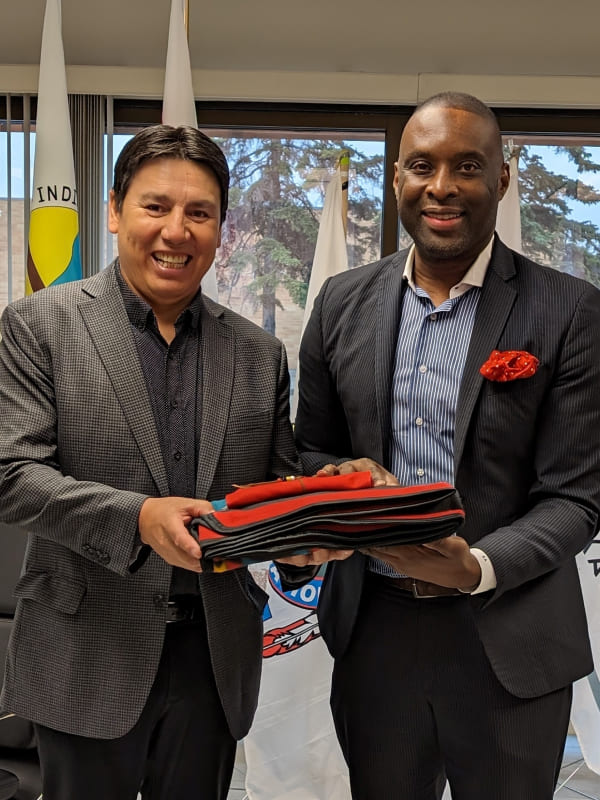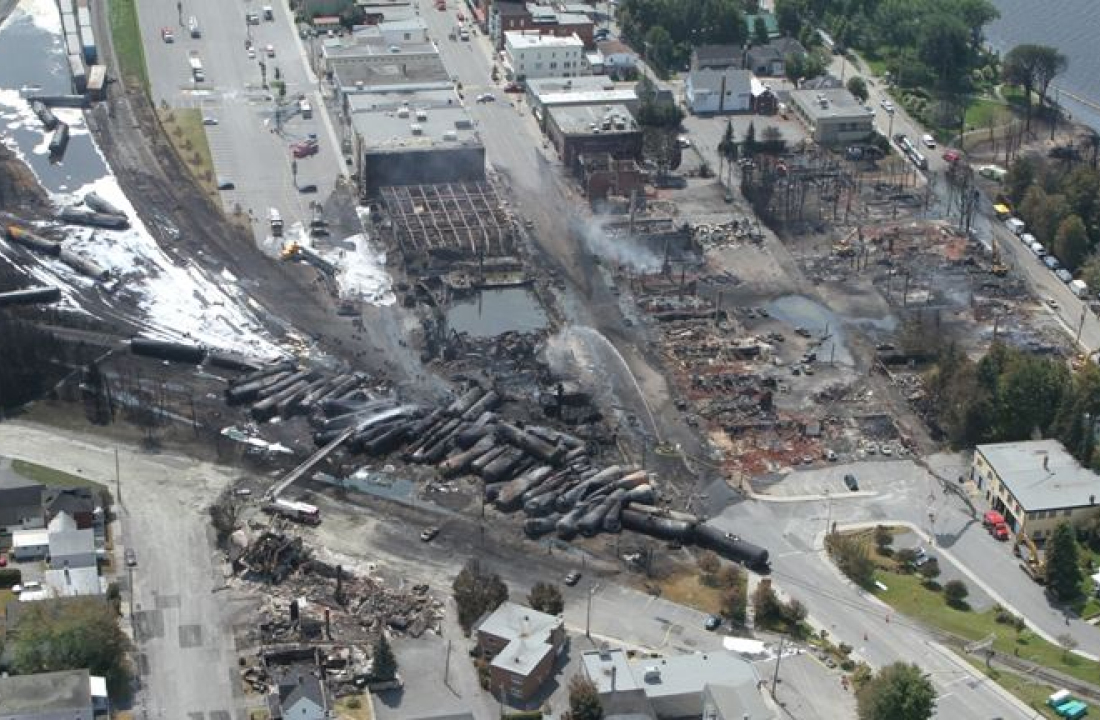About us
Ship and Rail Compensation Canada is Canada’s compensation hub for anyone affected by oil spills from ships or boats and by major rail accidents involving crude oil.
Every day, millions of litres of oil are transported or used by ship, boat, and rail in Canada. While generally safe, if a spill or an accident occurs, it can have negative impacts on communities, the environment, and the economy.
Our mission
Ship and Rail Compensation Canada is here to:

Help victims, responders, and anyone else affected get financial compensation.
We manage Canada’s Ship Fund and Rail Fund. Each Fund has its own claims process and eligibility criteria.

Removing the burden from taxpayers.
We are part of Canada’s polluter pays approach to incidents, which removes the burden from taxpayers.
Our mission is set out in federal legislation: the Marine Liability Act for the Ship Fund and the Canada Transportation Act for the Rail Fund
Our service commitment
Access to justice

Access to justice
We are committed to assisting any person or organization when they need us.
- Our goal is to provide fair and timely compensation.
- We maintain a robust readiness plan to efficiently pay many claims.
- We aim to ensure that claimants do not need to hire a lawyer.
Diversity, equity, and inclusion

Diversity, equity, and inclusion
We recognize that claimants are diverse and that marginalized groups may encounter barriers when attempting to access support. We are committed to advancing the principles of diversity, equity, and inclusion. To do so, we have built a fair compensation process, with the full participation of our many partners.
- We work together with the private sector, public institutions, Indigenous communities, and non-governmental organizations in Canada and internationally.
- We communicate and provide all our publications in both official languages.
- We are open and accountable by being transparent about our decisions and giving access to all available records.
Reconciliation with Indigenous Peoples

Reconciliation with Indigenous Peoples
- We acknowledge that our office in Ottawa is on the unceded and unsurrendered territory of the Anishinabe Algonquin Nation, whose presence here reaches back to time immemorial. We also operate on a number of Indigenous territories throughout the country and abroad. We take this time to show our gratitude and respect to them and to the land for all that it provides us.
- We commit to continuing to explore how to advance reconciliation with Indigenous Peoples in Canada and make meaningful contributions to the Calls to Action from the Truth and Reconciliation Commission of Canada.
Our governance
Ship and Rail Compensation Canada is independent from the Government of Canada.
The Ship Fund is also known by the legal name, Ship-source Oil Pollution Fund.
The Rail Fund is also known by the legal name, Fund for Railway Accidents Involving Designated Goods.
We are led and managed by the Chief Executive Officer of Ship and Rail Compensation Canada and Administrator of the Ship Fund and the Rail Fund.
- Ship and Rail Compensation Canada is the joint operating name for the two Funds.
Each Fund also has a Deputy Administrator, who reports to the Chief Executive Officer. The management oversees the activities performed by their directors and staff.

Administrative tribunal functions
The Ship Fund and the Rail Fund are administrative tribunals governed by federal legislation. This means that when our Administrator makes a decision about the assessment and payment of claims, they act like a court. They write and publish explanations to show their decisions are:
- reasonable
- logical and coherent
- evidence-based
- unbiased.
If you are dissatisfied with a decision, you have the right to appeal it to the Federal Court.
Our history
Both Funds were created in response to major environmental and human disasters.
In the past, victims, responders, taxpayers, and governments were often left without proper access to compensation. This was the case with the S.S. Arrow and Irving Whale oil spills in 1970 and the Lac-Mégantic derailment in 2013.
This changed when the Ship Fund and the Rail Fund were created. Read about the history of the Funds:
Ship Fund history Learn more
Rail Fund history Learn more

The Lac-Mégantic derailment site following the accident. Image from the Transportation Safety Board of Canada.
